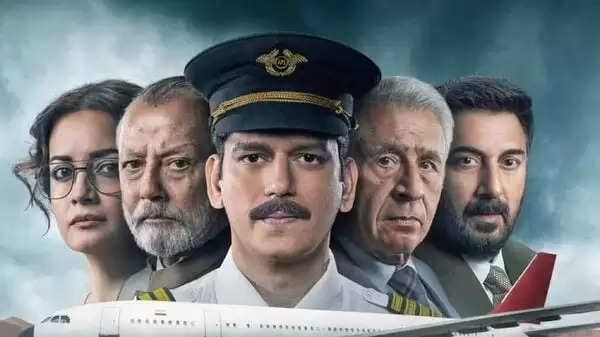On September 2, 2024, a big event happened: the Union Ministry of Information & Broadcasting (I&B) called Netflix India's content head, Monika Shergill, to talk about the growing controversy regarding the company's newest web series, "IC 814: The Kandahar Hijack." The show, which dramatises the terrifying 1999 hijacking of an Indian Airlines flight by Pakistani terrorists, has gotten a lot of attention for how it portrays the attackers.
The trouble started after the show came out, with reviewers and people on social media complaining about the names the terrorists were given. The online series, which was created and is directed by Anubhav Sinha, is said to be about the five hijackers, whose names are Chief, Doctor, Burger, Bhola, and Shankar. A public uproar has been caused by this choice of name, which has been accused of being insensitive and misleading.
The real-life hijacking of an Indian Airlines flight from Kathmandu to Delhi is well-known and has been written about in many stories and books. The series is based on the book "Flight into Fear: The Captain's Story," which was written by Srinjoy Chowdhury and Devi Sharan, who was the captain of the stolen flight. Some journalists and viewers, on the other hand, say that using names like Bhola and Shankar changes the truth about what happened.
Because of the backlash, the Ministry of Information & Broadcasting stepped in and asked Monika Shergill, who is in charge of material for Netflix India, to explain. The ministry's action shows how sensitive the problem is and how people feel about how historical events are portrayed in the media in general.
In a statement made on X (formerly Twitter), the casting director for the show, Mukesh Chhabra, defended the choice of name. Chhabra made it clear that the names in the series came from the attackers' real names or nicknames. He stressed that the team had done a lot of study to make sure it was real. "I'm reading a lot of tweets with hijackers' names in them." It was the right thing to do. "Those names, whether you call them nicknames or real names, they used to call each other by," Chhabra wrote. He also thanked director Anubhav Sinha for trusting him and giving him artistic freedom. He was glad that the show's ensemble cast had been well received.
Even though these things were made clear, the debate shows how hard it is for filmmakers to deal with real events, especially ones that involve sensitive or traumatic material. The I&B Ministry's action shows that the government is responsible for keeping an eye on what the media reports, especially when it comes to national security and historical truth.
People will be very interested in how the meeting between the I&B Ministry and Monika Shergill turns out, because it could set a standard for how to handle similar problems in the future. For now, the debate is still going on, showing how tricky it is to find the right mix between artistic freedom and the duty to honour historical facts and feelings.
--

